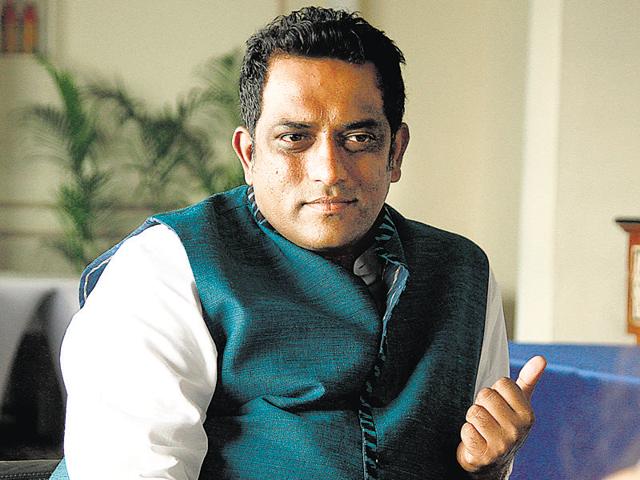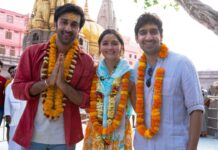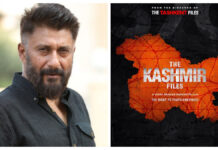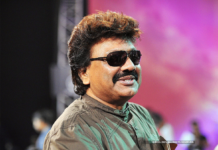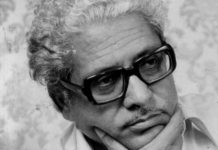The Hindi Film Industry is a famously cosmopolitan space welcoming creativity of all lands and regions. This absorption of variety in culture and personalities is instrumental in the production of memorable cinema. While there’s ample representation from all the directions of the country, quite a few Bengali filmmakers have been drawing acclaim, for their uncompromising, compelling and groundbreaking style of film making.
Some did form production houses like the one by Shakti Samanta, the Mukherjee-Samarth family or the Sen family….They were very few in comparison like say the famous Punjabi filmy royal dynasty of the Kapoors. This near absence of a successful Bengali Bollywood dynasty can be explained by the fact that more than half of Kolkata business or for that matter business in the state of West bengal has been in the control of Marwari business families from Rajasthan, Punjab and Gujarat from the time of the nawabs and the British. Bengalis concentrated only on academics, and office jobs, a doctor, engineer, lawyer or civil services groom was the most desirable for Bengali girls…a businessman has always been looked down.However, very few Bengali Bollywood directors could establish a successful filmy dynasty like the Kapoors, the Bachchan family, Chopra-Johar family, Roshan family, Bhatt family or the Salim Khan family. Rather than making a profitable production house most Bengali directors were more into making art-house films and even mainstream Bollywood films creatively. They did not consciously groom their off-springs in the business of films, because they were not inclined and they did not have the knack for business.
Ditto happened in Bollywood. Bengalis were more into the creative side of Bollywood film making like directing, singing, composing music and writing scripts… while businesses continued to built in bollywood by the more shrewder and sharper business communities, like Johars,Chopras,Barjatiyas, Bhatts etc.
The Bengali love of the creative side of Bollywood is definitely not a recent trend. All through the years, legendary Bengali directors like Bimal Roy, Satyajit Ray, Asit Sen, Shakti Samanta, Satyen Bose, Hrishikesh Mukerjee, Basu Chaterjee and Basu Bhattacharya have front lined the cause of Hindi films garnering enormous respect and accolades in the process.
Bimal Roy was not just one of the major directors of Bollywood’s Golden Age, he was a writer, producer, and outstanding cinematographer as well. He got into the film business as a camera assistant at the seminal New Theatres studio in Kolkata. After 1947, Roy moved to Bombay, he brought with him a sophistication and literary sense that great Bengali directors seem to claim as a birthright. In the early 50s he started his own production company; its inaugural release was the justly famous Do Bigha Zameen (Two Acres of Land), an international hit mining the same hardscrabble vein as the roughly contemporary Italian neo-realists. He is often credited with “opening the door” for what Indian cineastes call parallel cinema. He is particularly noted for his realistic and socialistic films like Do Bigha Zamin, Parineeta, Biraj Bahu, Madhumati, Sujata, and Bandini, making him an important director of Hindi cinema. He won a number of awards throughout his career, including eleven Filmfare Awards, two National Film Awards, and the International Prize of the Cannes Film Festival. Madhumati won 9 Filmfare Awards in 1958, a record held for 37 years.
The doyen, Satyajit Ray was drawn into Bollywood with just one Hindi feature film Shatranj Ke Khiladi.
Asit Sen director, cinematographer and screenwriter, worked both in Bengali and Hindi cinema. He directed 17 feature films in Hindi and Bengali, mostly known for films like Mamta (1966), Khamoshi (1969), Anokhi Raat (1968) and Safar (1970) in Hindi. Sen started his career, assisting auteur Bimal Roy at New Theatres in Calcutta, when Kolkata based film industry was on the decline, thus Roy shifted base to Bombay along with his team in 1950, which included Sen, Hrishikesh Mukherjee, Nabendu Ghosh, Kamal Bose and later Salil Chaudhury, and by 1952 he restarted the second phase of his career with Maa (1952) for Bombay Talkies.
Another notable Bengali Bollywood diirector was Shakti Samanta He founded Shakti Films in 1957, which is most known for films such as Howrah Bridge, China Town, Kashmir Ki Kali, An Evening in Paris, Kati Patang and Amar Prem. He received Filmfare Awards for Best Film for Aradhana (1969), Anuraag (1973) and Amanush, which was also made in Bengali, a language in which he made six films, including an Indo-Bangladesh joint production in 1984. Samanta was among the directors who worked with Shammi Kapoor in the late 1950s and up to the mid ’60s, then with Rajesh Khanna, creating a number of classics such as Aradhana, Kati Patang, Anurodh and Amar Prem. However, his movies with Amitabh Bachchan were not major hits.
Another luminary among the Bengali Bollywood directors was Satyen Bose. He directed both Bengali and Hindi language films. Among his most notable films are Raat Aur Din, Chalti Ka Naam Gaadi, Dosti and Jagriti. Jagriti won the Filmfare Best Movie Award in 1956 and Dosti won the same award in 1964. Without any formal training in cinema Bose rose to fame with his offbeat debut film Parivartan (1949). He remade the Bengali film in Hindi as Jagriti in 1954.
Hrishikesh Mukherjee left an indelible mark in Bollywood with gems like Satyakam, Chupke, Chupke, Anupama, Anand, Abhimaan, Guddi, Gol Maal, Aashirwad, Bawarchi, Kissi Se Na Kehna and Namak Haraam. Popularly known as Hrishi-da, he directed 42 films during his career spanning over four decades, and is named the pioneer of the ‘middle cinema’ of India. Renowned for his social films that reflected the changing middle-class ethos, Mukherjee “carved a middle path between the extravagance of mainstream cinema and the stark realism of art cinema”.
His works mainly hovered around marital relationships. And his marital trilogy ‘Anubhav’, ‘Aviskaar’ and ‘Grihapravesh’ is heralded as one of the best in its genre in the annals of Hindi cinema. We are talking about Basu Bhattacharya. Most famous for his 1966 film Teesri Kasam, starring Raj Kapoor and Waheeda Rehman which won the National Film Award for Best Feature Film in 1967; he also produced Sparsh in 1985 starring Shabana Azmi and Naseeruddin Shah, which won the Filmfare Best Movie Award and the most famous box office hit. And the critically acclaimed film directed by him Avishkaar starring Rajesh Khanna and Sharmila Tagore received five stars in Bollywood Guide “Collections” and Rajesh Khanna received Filmfare Best Actor Award in 1975.
Many Bengali directors of today, like Bollywood director Shoojit Sircar describeds Satyajit Ray’s masterpiece “Pather Panchali” as the Bible of his life. And even has conceded that he copies the works of the maestro. Said Shoojit, “actually I copy him. You won’t notice what I am copying but I know what I am copying. I do it in whatever film I do. It is the Bible of my life,” he said at a function to mark 60 years of the release of ‘Pather Panchali’. The maker of hits like “Madras Cafe”, “Vicky Donor” and the latest “Piku” said the first part of “The Apu Trilogy” has had a big impact on his life.Basu Chatterjee carved a special niche for himself with an ouevre of powerful films . He made his debut with the 1966 film Teesri Kasam, produced by the lyricist Shailendra. Basu Chatterjee through the 1970s and 80s, became associated with what came to be known as middle cinema or middle-of-the road cinema, with film makers like Hrishikesh Mukherjee and Basu Bhattacharya, whom he assisted in Teesri Kasam (1966). Like them, his films also dealt with light-hearted stories of middle-class families often in urban settings, focussing on marital and love relationships, with exceptions like Ek Ruka Hua Faisla (1986) and Kamla Ki Maut (1989), which delved into social and moral issues. He is best known for his films Chhoti Si Baat (1976), Chitchor (1976), Rajnigandha (1974), Piya Ka Ghar (1972), Baton Baton Mein (1979) and Shaukeen (1982).
The current lot isn’t behind in doing quality work what with some of the best films of nowadays are helmed by Bangla-speaking visionaries.
After working on the hit television soap series, Tara, Anurag Basu realised his heart lies in making feature films. A couple of false starts later, the director hit jackpot for the Bhatt camp with the musical thriller, Murder. Proving there’s more to him than adapting Unfaithful with a scorching Mallika Sherawat, Anurag Basu impressed with his narrative style and technique in films like Gangster and Life… In A Metro while battling serious illness. Although the big-budget Kites with Hrithik Roshan and Barbara Mori failed to follow suit, his Barfi! with Ranbir Kapoor and Priyanka Chopra hit the bulls eye.
His contemporaray Dibakar Banerjee is one of the top filmmakers of the country. Having made truly memorable films on his own terms is practically unheard of in this camp-driven industry. The man’s resume is sparkling with intelligence, wit and innovation — Khosla Ka Ghosla, Oye Lucky, Lucky Oye, Love Sex Aur Dhoka and Shanghai and Bymokesh.
From engineering to journalism to filmmaking, the Kolkata-born filmmaker is as mercurial as his movies. Sujoy Ghosh began his career paying tribute to the iconic composer, Rahul Dev Burman in his directorial debut, Jhankaar Beats with Vishal-Shekhar’s catchy soundtrack and a star cast of Juhi Chawla, Sanjay Suri, Rahul Bose and Riya Sen. Even as his subsequent films, Home Delivery and Aladin failed to make much impact, they reflected a sense of refusal to attempt the tried and tested. Then a new Kahaani unfolded– his Vidya Balan-led mystery shot entirely in Kolkata, which rocked the box office and critics alike.
Ayan son of actor Deb Mukherjee, part of the larger Mukherjee-Samarth family, started out as an assistant to Ashutosh Gowariker and Karan Johar. The latter was impressed enough to sign the 20-something to make his own coming-of-age story, Wake Up Sid with Ranbir Kapoor and Konkona Sen Sharma.
Mukherjee’s young and hip outlook reminded viewers of an early Farhan Akhtar. Mukerji’s next film, also under Karan Johar’s banner Dharma Productions, was Yeh Jawani Hai Deewani, with Deepika Padukone and Ranbir Kapoor in lead roles. It was a huge commercial success. The movie has crossed 1 billion in the box office in just 7 days. As of now, Mukerji’s next project is scheduled to be direction of a superhero film starring Ranbir Kapoor and Alia Bhatt slated for 2017.
Fridaybrands.com opines that it would be great if more and more Bengali Bollywood directors contribute to Bollywood in a bigger way with more and more offbeat subjects like they have been doing. And who knows another Satyajit Ray or a Bimal Ray of today may emerge soon, again to chart Bollywood and Indian cinema on a whole, a new path…. However, Bengali Bollywood directors should also concentrate on establishing successful film production houses so that they have more control over the film making process and make more meaningful yet commercially successful Bollywood films.


